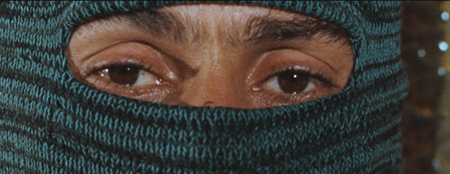|
Reviews of Recent Independent, Foreign, & Documentary Films in Theaters and DVD/Home Video
Directed by: Jason Kohn. Produced by: Jason Kohn, Jared Ian Goldman & Joey Frank. Photographed by: Heloisa Passos. Edited by: Andy Grieve, Doug Abel & Jenny Golden. Released by: City Lights Pictures. Language: English and Portuguese with English subtitles. Country of Origin: USA. 85 mins. Not Rated. Kidnapping for profit in Latin America has been the basis for Hollywood action movies (Tony Scott’s Man on Fire) and politically-tinged thrillers like Jonathan Jakubowicz’s Secuestro Express. Debut documentarian Jason Kohn goes further by examining kidnapping in Brazil as a class-based link between violent crime and white-collar corruption, where the rich rob the poor and the poor in turn rob the rich. Just as Michael Moore explored who profits from fear in Bowling for Columbine, Kohn, a protégé of Errol Morris, finds entrepreneurs benefiting from the justifiable paranoia of São Paulo’s wealthy – the fleets of helicopters for avoiding commuting by car, plastic surgery for mutilated kidnapping victims, customized bullet proof cars, and James Bond-like subdermal global positioning ID chips. Squeamish viewers should be warned that Kohn doesn’t just have interviewees describe horrific details. Some, like this viewer, may turn away from the several harrowing videos that kidnappers have sent for ransom that demonstrate the abuse of their victims, one with a crying child. He also shows plastic surgery in graphic mode that goes way beyond the imitations on TV’s Nip/Tuck. Intertwined is an examination of a gigantic government embezzlement scheme allegedly carried out with impunity by one of the country’s most powerful officials, who also is a national media baron. Kohn returns again and again in fascination to the commercial frog farm that may have helped launder as much as two billion dollars of government funds meant for the desperately needed economic development in the Amazon. But the irreverent editing style undercuts and draws out the film. Kohn’s approach means to emphasize the contrast between rich and poor, between tourist Brazil and the real deal. But breezy samba and other Brazilian songs accompany serious discussions and increasingly gruesome images, as if this were carnival. And each person interviewed is first heard, frequently in Portuguese, or seen for at least a full minute before being identified, and not always re-identified when they appear again later. Then they are filmed sitting next to translators, having to patiently wait while what they just said in Portuguese is blandly repeated in English. Some participants with limited English skills are reduced to speaking simplistically, groping for assistance from translators, instead of having the freedom to be fluent in their native tongue. Perhaps Kohn thought this technique would appeal more to the English-speaking audience. However, the interview with a ski-masked kidnapper spinning his Robin Hood defense is filmed without a translator – perhaps it was too risky to have one accompany him into the slum. Newspaper clippings in Portuguese do effectively morph into English, though the muckraking journalists who uncovered the political scandal are not interviewed.
The film’s 87 minutes stretch out with heavy-handed repetitions of points made and visuals contrasting the modern skyscrapers and estates of the
rich to the hillside slums. As Brazilians chomp on fried frog legs and the face of the kidnapper fades into a close-up of the controversial
politician, Kohn takes his time to get to what Woody Guthrie sang succinctly in “Pretty Boy Floyd:” “I've seen lots of funny men/Some will rob you with a six-gun/And some with a fountain pen.”
Nora Lee Mandel
|

